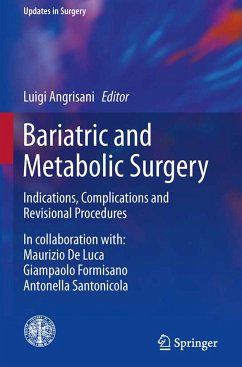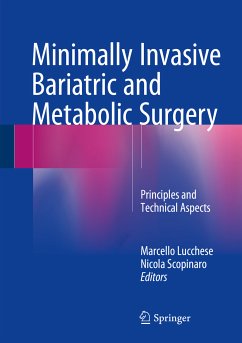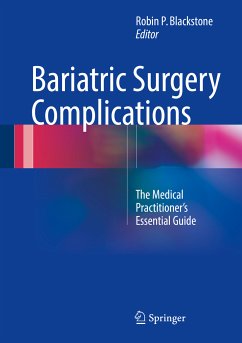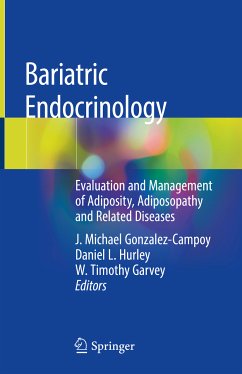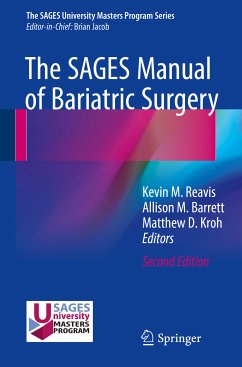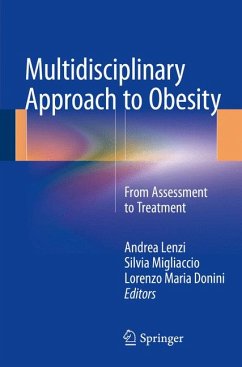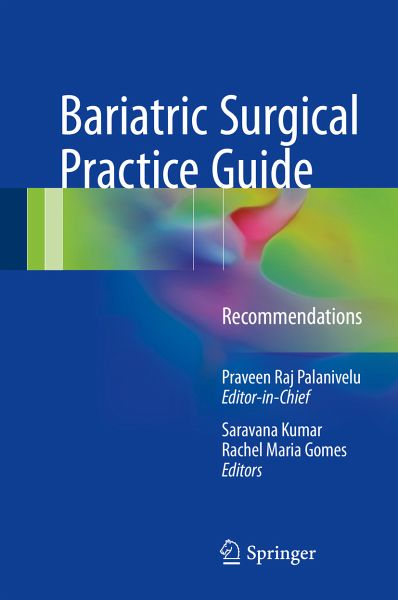
Bariatric Surgical Practice Guide (eBook, PDF)
Recommendations
Redaktion: Kumar, Saravana; Gomes, Rachel Maria
Versandkostenfrei!
Sofort per Download lieferbar
68,95 €
inkl. MwSt.
Weitere Ausgaben:

PAYBACK Punkte
34 °P sammeln!
This book provides a comprehensive review of literature of various aspects of bariatric surgery arriving at practical recommendations for simplifying day to day practice. This book is divided into 10 sections covering selection of patient, preoperative predictors of outcome, technical considerations, specific situations, post-operative pathways, management of complications, revisional surgery, and perioperative nutritional aspects. It covers specific situations in bariatric surgery such as GERD, hernia repair, gallstone disease, PCOD, NAFLD and end-organ disease. Bariatric Surgical Practice Gu...
This book provides a comprehensive review of literature of various aspects of bariatric surgery arriving at practical recommendations for simplifying day to day practice. This book is divided into 10 sections covering selection of patient, preoperative predictors of outcome, technical considerations, specific situations, post-operative pathways, management of complications, revisional surgery, and perioperative nutritional aspects. It covers specific situations in bariatric surgery such as GERD, hernia repair, gallstone disease, PCOD, NAFLD and end-organ disease.
Bariatric Surgical Practice Guide is a quick resource for practicing bariatric surgeons, young and experienced, to understand all practical aspects of this surgery which is gaining importance worldwide at a rapid pace. Recommendations are based on existing literature as well as opinions of the authors who work at state-of-the-art clinical facilities.
Dieser Download kann aus rechtlichen Gründen nur mit Rechnungsadresse in A, B, BG, CY, CZ, D, DK, EW, E, FIN, F, GR, HR, H, IRL, I, LT, L, LR, M, NL, PL, P, R, S, SLO, SK ausgeliefert werden.




